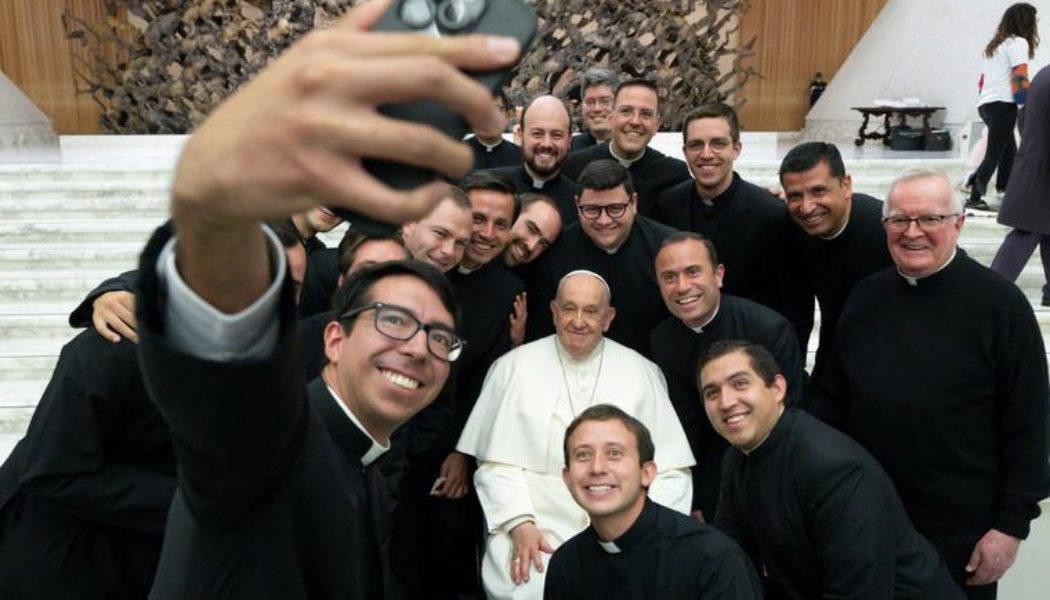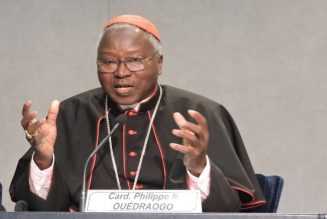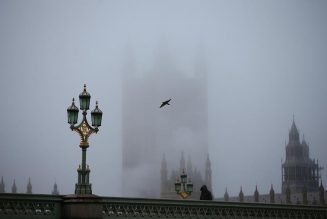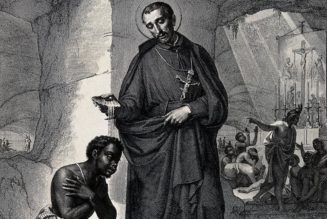
COMMENTARY: Parish priests, after years of pointed criticisms from the Holy Father, will appreciate the kind words in his letter, but they might be less enthusiastic about his call to become ‘missionaries of synodality.’
Pope Francis has addressed a warm and affectionate letter to parish priests throughout the Church. The letter, written on the occasion of a meeting of parish priests in Rome as part of the synodal process, attempts three things — to repair the damage done by the exclusion of parish priests from the synodal assembly last October; to ground “synodality” in the Holy Father’s missionary vision; and to encourage a spirit of fraternity among priests in their dioceses.
The letter is encouraging and expresses gratitude to parish priests, noting that “the Church could not go on without your dedication and your pastoral service.”
Pope Francis acknowledges that he should not have to say that, as it is “so obvious as to sound almost banal.” But after years of pointed criticisms from the Holy Father, who has blasted priests for being tyrants in the confessional, inflicting windy homilies on the faithful and infecting the Church with clericalism, priests will appreciate the kind words.
A more specific problem was that low esteem for parish priests was reflected in the invitations to the synodal assembly last October in Rome. Hundreds were invited. Those chosen included rank upon rank of clerical bureaucrats, but nary a parish priest. When that was pointed out, there was acute embarrassment among the synod organizers, who realized that high-sounding rhetoric about the synodal process being a grassroots operation was now suspect. They had forgotten about parishes in their preference for the conferencing class.
Thus the decision to gather parish priests this week just outside of Rome. Some 300 were invited to meet for five days in an international meeting styled “Parish Priests for the Synod.”
No parish priests will be added to the actual synodal assembly, but the proceedings of this week’s meeting will be added to the voluminous paper generated in other synodal meetings held in recent months. The synod managers will massage all that into the preparatory documents for the October assembly.
Pope Francis also addressed a broader question relevant to parish priests. For priests who work in the Roman Curia, or at national episcopal conferences, or work in the local diocesan bureaucracy, a meeting is usually the preliminary response to any problem. If the problem is more complex, a series of meetings will be held.
The reality is somewhat different at the parish level. Most parish priests lament that meetings take up too much of their time. The view is that meetings often get in the way of the work to be done. Hence the synodal process on synodality struck many as a meeting about meetings — exactly what they try to avoid in daily parochial life.
At the beginning of his pontificate, Pope Francis called for all parish activities to be reconsidered — from the Mass schedule to marriage preparation — in a “missionary key.” Thus when the Holy Father’s flagship initiative was announced in 2021 as a Synod on Synodality, the question arose: How can the Church be engaged in mission if she is engaged in meetings?
In more than a few parishes, pastors more or less chose to opt out of the synodal process. They already had plenty of meetings and plenty of consultation. Why add more?
In his letter, Pope Francis asserts the link between synodality and mission.
“We will never become a synodal and missionary Church unless parish communities are distinguished by the sharing of all the baptized in the one mission of proclaiming the Gospel,” the Holy Father writes. “If parishes are not synodal and missionary, neither will the Church be.”
“As pastors, we are called to accompany in this process the communities that we serve … ensuring that our ministry is suited to the needs of a synodal and missionary Church,” Pope Francis continues. “Along the way, we will discover how to set our ministry free from the things that wear us down and rediscover its most authentic core, the proclamation of God’s word and the gathering of the community for the breaking of bread.”
Therein lies the still unanswered question, three years into the synodal process on synodality for a synodal Church. Does synodality get in the way of the “authentic core” of proclaiming the gospel and celebrating the sacraments? Or does it enhance it?
Pope Francis makes a practical suggestion that may resonate with some priests. He advises using the “conversations in the Spirit” methodology used in Rome, which includes pauses for prayer and reflection, and allows all to speak and react to what has been said. Many assembly participants spoke favorably about their experience of that method last October.
Parish priests who already have many meetings may welcome advice on how to have better, more Spirit-led meetings, rather than just more meetings.
The conclusion at last October’s assembly that “synodality” remained an undefined concept hampered the Holy Father’s letter. He has set up a study group to ponder that out, but it won’t report until 2025. For the time being then, Pope Francis can only assert that synodality and mission go together.
To those pastors who think a synodal Church is a less missionary Church, the papal letter does not attempt to persuade. Nevertheless, there is a call to be “missionaries of synodality, among yourselves and, once you return home, with your fellow parish priests.”
The Church has missionaries of charity, missionaries of mercy, missionaries of the Divine Word. It is possible that the synod managers think that parish priests will be excited to be “missionaries of synodality.” It is conceivable, though, that to be a missionary of synodal meetings will not quicken the evangelical pulse.
A third element of the Holy Father’s letter was to encourage “a spirit of sharing and fraternity among yourselves and with your bishops.”
“We cannot be authentic fathers unless we are first sons and brothers,” Pope Francis writes. “And we cannot foster communion and participation in the communities entrusted to our care unless, before all else, we live out those realities among ourselves.”
Noting that fraternal encounters may seem “burdensome, even a waste of time,” the Holy Father nevertheless asks parish priests to devote time and energy to their relations with their bishop and fellow priests. While not referenced by the Holy Father in the letter, that passage may have been prompted by recent surveys that indicated a breakdown of trust and confidence in bishops by parish priests.
The synodal process still limps on, more of a grind now than a grand initiative. Whether an appreciable number of parish priests will eagerly embrace the invitation to be missionaries of synodality remains to be seen. But they will appreciate being noticed, and the words of papal gratitude.









